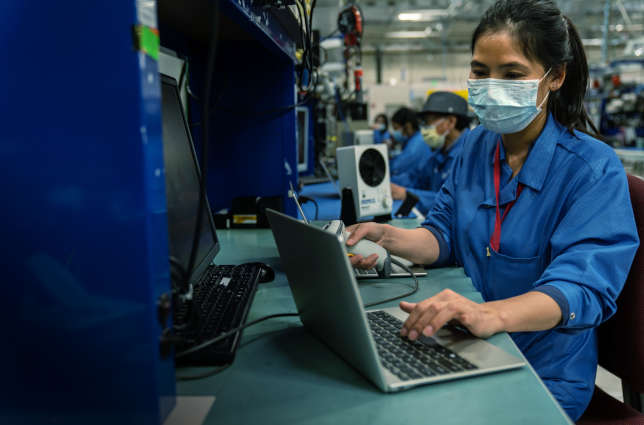A Texas county with an all-digital public library is taking on the job of developing a private wireless network to support its rural and economically poor students.
A network that connects Utah's K-12 schools, colleges and universities, public libraries and healthcare providers is forging ahead with plans to set up a private LTE network, to address the digital divide.
10G offers the promise of delivering 10 times the current most prevalent maximum speeds offered to consumers.
Two organizations have kicked off a project to help increase home connectivity for students. The "K-12 Bridge to Broadband" initiative is the brainchild of the Internet & Television Association (NCTA) and EducationSuperHighway, a national nonprofit that helped lead work to close the classroom connectivity gap. The goal is to help public school districts and states identify the students who need access to the internet and potentially connect them.
The project will be coordinated by the District's Office of the Chief Technology Officer (OCTO) and will incorporate internet streaming through Comcast's Internet Essentials and RCN's Internet First programs.
A public-private partnership in Philadelphia will help up to 35,000 students in low-income households acquire computing devices and internet access. "PHLConnectED,"as the program is called, will also provide digital skills training and tech support for families, in time for the start of school.

A grant from Qualcomm Technologies, a San Diego-area company, will enable the San Diego Unified School District to deploy 900 new personal computers to students. What's unique is that the units have built-in cellular connectivity. The company has also committed to a one-time $141,000 donation to cover the cellular connectivity costs for the devices.
The research project quantified how much less likely low-income and non-white children and youth were to have access to the internet than their peers.

It's time for E-rate to cover the cost of home internet access. That's the word from 7,664 teachers, education IT people, principals and superintendents who have signed a letter to the Federal Communications Commission urging the Commission to make E-rate funds available to help schools and districts "equip" students with home internet access.
Kajeet, which produces a device delivering wireless Internet access to students who lack broadband connectivity, has expanded its selling options.